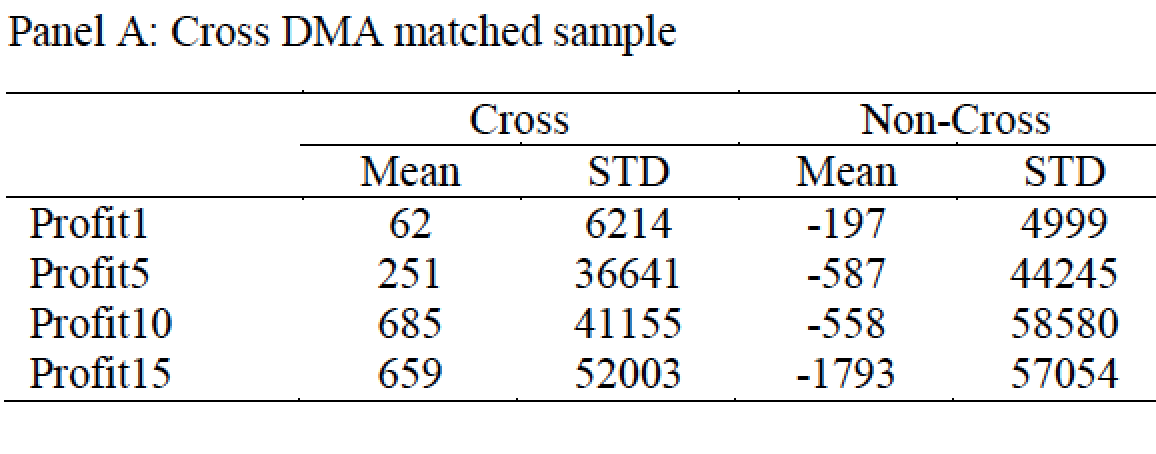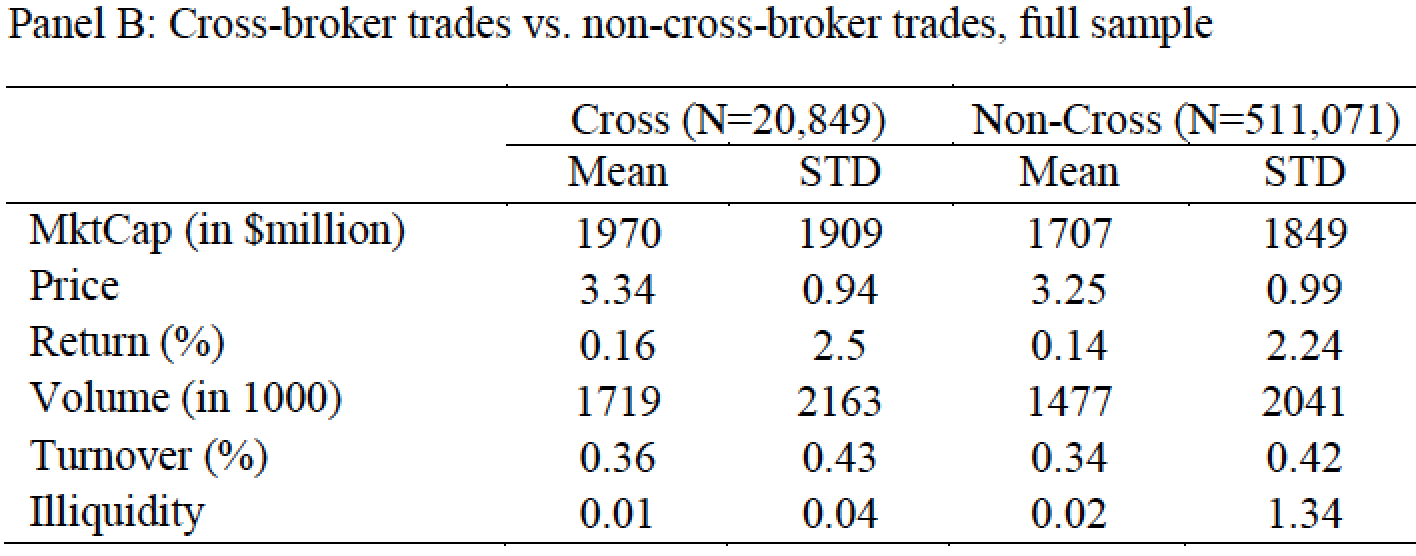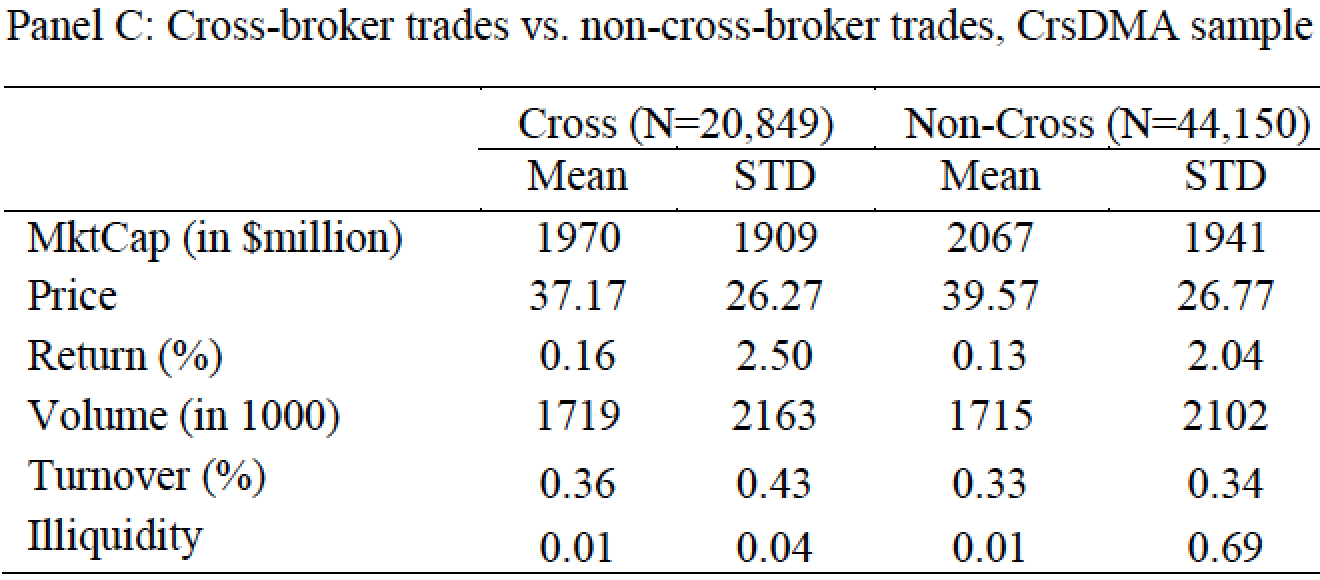Preventing Information Leakage
Discussion by Katya Malinova
Paper by Jonathan Brogaard, Dan Li, Matthew Ma, and Ryan Riordan
Main Findings
Trades split across brokers:
- larger & more profitable
Compared to similar trades:
- smaller price impacts
- larger profitability
\(\Rightarrow\) Split trades prevent info leakage(?)
How it fits into the literature?
information leakage by brokers
- McNally, Shkilko, Smith (MS 2016): brokers leak presence of insider trades
- DiMaggio, Franzoni, Kermani, Sommavilla (WP 2018): broker networks
Delegated venue routing decisions
Spliting orders across time
- Menkfeld & van Kervel (JF 2018): interaction of HFTs and large orders
- Korajczyk & Murphy (RFS 2019): HFT liquidity provision to large orders
- Malinova & Park (WP 2017): multi- vs single-market routing
- Battalio, Hatch Saglam (WP 2019): routing of orders to HFTs
- Anand, Samadi, Sokobin, Venkateraman (WP 2019): brokers routing to their own platforms
This paper:
- no delegation (=DMA)
- splitting across brokers
- leakage by brokers
Q1: why DMA clients and who are they?
Pro: User ID info \(\Rightarrow\) can identify all trades
But: who are these firms?
- What info do they trade on?
- What are the trading/info horizons?
- E.g., HFT vs. buy-side institutions?
- What about non-DMA buy-side institutions?
- How prominent are DMA arrangements among buy-side?
- Can you condition on the DMA firm type?
Q2: Mechanics of leakage?
- Authors: "exploiting the information passed by the broker".
- Background idea: contact the broker, they know who you are & tip off other clients
- McNally, Shkilko, Smith (2015): trades of insiders
- Here: DMA clients.
- How do the brokers detect & broadcast these?
- Run an algo? (Commit fraud and document it???)

Q2: Leakage, detection, or spurious correlation?
Alternate explanations:
- Broker/HFT fixed effects
- No "leakage" but split trades to avoid detection
- Many HFTs come through CIBC and BofA
- Extreme scenario: if split trades exclude CIBC
- \(\Rightarrow\) different firm types use split vs. non-split
- \(\Rightarrow\) more likely to have "followers" with non-split (CIBC)
Q2: Leakage, detection, or spurious correlation?
- Canada: public broker attribution
- \(\Rightarrow\) Harder to detect large trades if split across brokers
- Authors: "trade followers" from the same broker
- Suggestion: check "followers" from other brokers
- Caution: broker/HFT fixed effect
Alternate explanations:
- Broker/HFT fixed effects
- No "leakage" but split trades to avoid detection
Q3: Causality & Decision to Split?

Why don't they always split across brokers?
Split vs. non-split for different strategies?
- E.g., split long-run "buy and hold", don't for arbitrage
- Can "negative" profits be one-leg of a multi-leg strategy?
- E.g., arbitrage for cross-listed stocks or trades across multiple asset classes?
Do firms learn to split over time?
- Is the effect persistent through the sample?
Q3: Causality & Decision to Split?
Summary stats?




Summary stats?


- More controls/robustness checks?
- Active vs passive
- Cross-listed
- Broker fixed effects and/or fraction of HFT DMAs
Other Comments
- Followers: trades over one to two weeks
- With large trades identified daily, who follows who?
- Do the followers "follow" or "behave as always"?
- Duration of split vs. non-split trades?
- Large trades: daily
- Do matched split and non-split trades last the same time?
@katyamalinova
malinovk@mcmaster.ca

slides.com/kmalinova
https://sites.google.com/site/katyamalinova/